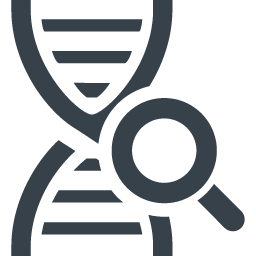 PDGFRL gene related symptoms and diseases
PDGFRL gene related symptoms and diseases
All the information presented here about the PDGFRL gene and its related diseases, symptoms, and test panels has been aggregated from the following public sources: NCBIGENE,HGNC,ORPHANET,OMIM, Mendelian Rare Disease Search Engine.
Top 5 symptoms and clinical features associated to PDGFRL gene
| Symptoms // Phenotype | % Cases |
|---|---|
| Neoplasm | Common - Between 50% and 80% cases |
| Carcinoma | Common - Between 50% and 80% cases |
| Colon cancer | Uncommon - Between 30% and 50% cases |
| Epigastric pain | Uncommon - Between 30% and 50% cases |
| Giant cell hepatitis | Uncommon - Between 30% and 50% cases |
Other less frequent symptoms and clinical features
Patients with PDGFRL gene alterations may also develop some of the following symptoms and phenotypes:Not very common - Between 30% and 50% cases
- Embryonal neoplasm
- Portal vein thrombosis
- Hepatic necrosis
- Viral hepatitis
- Subacute progressive viral hepatitis
- Oligodontia
- Microcephaly
- Colitis
And 32 more phenotypes, you can get all of them using our tools for rare diseases.
Rare diseases associated to PDGFRL gene
Here you will find a list of rare diseases related to the PDGFRL. You can also use our tool to get a more accurate diagnosis based on your current symptoms.
PEDIATRIC HEPATOCELLULAR CARCINOMA
Alternate names
PEDIATRIC HEPATOCELLULAR CARCINOMA Is also known as liver cancer, lcc, childhood-onset hcc, hcc, liver cell carcinoma, hepatoma, cancer, hepatocellular, childhood-onset hepatocellular carcinoma, pediatric hcc
Description
Pediatric hepatocellular carcinoma (pediatric HCC) is a rare, aggressive, malignant hepatic tumor that develops mainly in children over 10 years of age.
Most common symptoms of PEDIATRIC HEPATOCELLULAR CARCINOMA
- Microcephaly
- Neoplasm
- Cryptorchidism
- Motor delay
- Hepatomegaly
More info about PEDIATRIC HEPATOCELLULAR CARCINOMA
COLORECTAL CANCER; CRC
Alternate names
COLORECTAL CANCER; CRC Is also known as colon cancer
Description
Colorectal cancer is a heterogeneous disease that is common in both men and women. In addition to lifestyle and environmental risk factors, gene defects can contribute to an inherited predisposition to CRC. CRC is caused by changes in different molecular pathogenic pathways, such as chromosomal instability, CpG island methylator phenotype, and microsatellite instability. Chromosome instability is the most common alteration and is present in almost 85% of all cases (review by Schweiger et al., 2013).
Most common symptoms of COLORECTAL CANCER; CRC
- Neoplasm
- Carcinoma
- Oligodontia
- Colon cancer
- Colitis
More info about COLORECTAL CANCER; CRC
SOURCES: OMIM
ADULT HEPATOCELLULAR CARCINOMA
Alternate names
ADULT HEPATOCELLULAR CARCINOMA Is also known as adult hcc
Description
Adult hepatocellular carcinoma is the most common primary liver cancer of adulthood. Derived from well-differentiated hepatocytes, it often develops from chronic liver cirrhosis which is most often due to hepatitis B and C virus or alcohol abuse. Symptoms are hepatic mass, abdominal pain and, in advanced stages, jaundice, cachexia and liver failure.
More info about ADULT HEPATOCELLULAR CARCINOMA
SOURCES: ORPHANET
Search interest in PDGFRL
Potential gene panels for PDGFRL gene
PDGFRL Panel
 United States.
United States.
By Fulgent Genetics Fulgent Genetics
This panel specifically test the PDGFRL gene.
More info about this panel United States.
United States.
PrimBio Colorectal Cancer Panel Panel
 United States.
United States.
By PrimBio Research Institute PrimBio Research Institute PrimBio Colorectal Cancer Panel that also includes the following genes: BLM BMPR1A SCG5 BRAF BRCA1 STK11 BUB1B EPCAM TCF7L2 TGFBR2
More info about this panel United States.
United States.
If you liked this article maybe you will also find interesting the following in-depth articles about other rare diseases, like HLX-AS1 HGD SLC35A2 TGM3